
Alex or Aleck Miller, known later in his career as Sonny Boy Williamson, was an American blues harmonica player, singer and songwriter. He was an early and influential blues harp stylist who recorded successfully in the 1950s and 1960s. Miller used various names, including Rice Miller and Little Boy Blue, before calling himself Sonny Boy Williamson, which was also the name of a popular Chicago blues singer and harmonica player. To distinguish the two, Miller has been referred to as Sonny Boy Williamson II.

Five Live Yardbirds is the live debut album by English rock band the Yardbirds. It features the group's interpretations of ten American blues and rhythm and blues songs, including their most popular live number, Howlin' Wolf's "Smokestack Lightning". The album contains some of the earliest recordings with guitarist Eric Clapton.
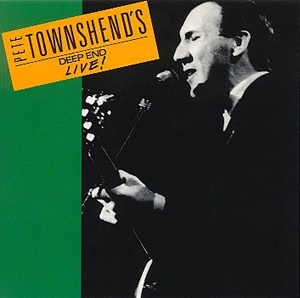
Deep End Live! is an album containing excerpts of the live performance by Pete Townshend's Deep End band, at the Brixton Academy in London, England on 1-2 November 1985. In addition to Townshend, the band included Pink Floyd guitarist David Gilmour, drummer Simon Phillips, bassist Chucho Merchan, keyboardist John "Rabbit" Bundrick, percussionist Jody Linscott, harmonica player Peter Hope Evans, the horn section Kick Horns and backing vocalists. The album was originally released in the U.S. in August 1986 by Atco Records.

"Bring It On Home" is a blues song written by American music arranger and songwriter Willie Dixon. Sonny Boy Williamson II recorded it in 1963, but the song was not released until 1966. Led Zeppelin adapted it in part as a homage to Williamson in 1969 and subsequently, the song has been recorded by several artists.
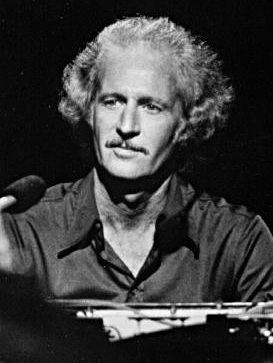
Mose John Allison Jr. was an American jazz and blues pianist, singer, and songwriter. He became notable for playing a unique mix of blues and modern jazz, both singing and playing piano. After moving to New York in 1956, he worked primarily in jazz settings, playing with jazz musicians like Stan Getz, Al Cohn, and Zoot Sims, along with producing numerous recordings.

Taj Mahal is the debut album by American guitarist and vocalist Taj Mahal. Recorded in 1967, it contains blues songs by Sleepy John Estes, Robert Johnson, and Sonny Boy Williamson II reworked in contemporary blues- and folk-rock styles. Also included is Taj Mahal's adaptation of Blind Willie McTell's "Statesboro Blues", which inspired the popular Allman Brothers Band recording.

Sonny Boy Williamson & the Yardbirds is a live album by Chicago blues veteran Sonny Boy Williamson II backed by English rock band the Yardbirds. It was recorded at the Crawdaddy Club in Richmond, Surrey on December 8, 1963. However, the performances were not released until early 1966, after a string of Top 40 hits by the Yardbirds.
"One Way Out" is a blues song that was recorded in the early 1960s by both Sonny Boy Williamson II and Elmore James. A reworking of the song by G. L. Crockett, titled "It's a Man Down Here", appeared on the Billboard record charts in 1965. In 1971, the Allman Brothers Band recorded an updated live version of the song, which was included on their popular Eat a Peach album (1972).

Eric Clapton at His Best is a two-LP compilation of Eric Clapton's work after he left his earlier band Cream, released in September 1972. It was concurrently released with a two-LP compilation of Cream tracks, Heavy Cream, along with "at His Best" solo retrospectives by Cream's other members Jack Bruce and Ginger Baker.
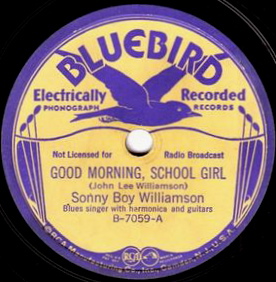
"Good Morning, School Girl" is a blues standard that has been identified as an influential part of the blues canon. Pre-war Chicago blues vocalist and harmonica pioneer John Lee "Sonny Boy" Williamson first recorded it in 1937. Subsequently, a variety of artists have recorded versions of the song, usually calling it "Good Morning Little Schoolgirl".
Willie Love Jr. was an American Delta blues pianist. He is best known for his association with and accompaniment of Sonny Boy Williamson II.
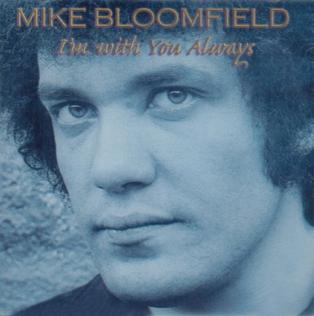
I'm with You Always is a live album by Mike Bloomfield. It was recorded in 1977 at McCabe's Guitar Shop in Santa Monica. It was originally released as a CD on Demon Records in Europe and finally released in the US in 2008 on the Benchmark Recordings label. Bloomfield shows off his ability to master all forms of blues, from acoustic delta blues, to Chicago electric blues, to full-out blues-rock.
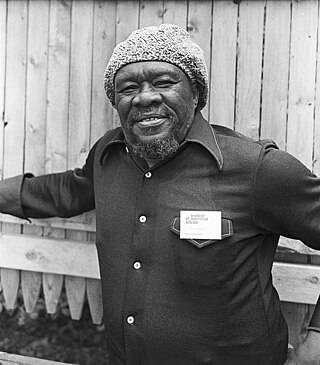
Joe Willie Wilkins was an American Memphis blues guitarist, singer and songwriter. He influenced his contemporaries Houston Stackhouse, Robert Nighthawk, David Honeyboy Edwards, and Jimmy Rogers, but he had a greater impact on up-and-coming guitarists, including Little Milton, B.B. King, and Albert King. Wilkins's songs include "Hard Headed Woman" and "It's Too Bad."

Freddy King Sings is an album by blues singer and guitarist Freddie King. Released in 1961, it was King's first album and includes four singles that appeared in Billboard magazine's R&B and Pop charts. In 2008, Freddy King Sings was inducted into the Blues Foundation Hall of Fame in the "Classics of Blues Recordings" category.
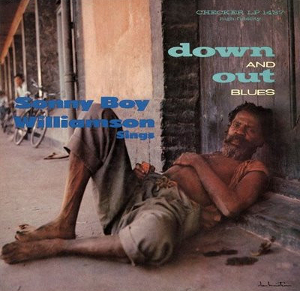
Down and Out Blues is the first LP record by American blues musician Sonny Boy Williamson. The album was released in 1959 by Checker Records.
"Sugar Mama" or "Sugar Mama Blues" is a blues standard. Called a "tautly powerful slow blues" by music journalist Charles Shaar Murray, it has been recorded by numerous artists, including early Chicago bluesmen Tampa Red, Sonny Boy Williamson I, and Tommy McClennan. John Lee Hooker and Howlin' Wolf later adapted "Sugar Mama" for electric blues and rock group Led Zeppelin reworked it during early recording sessions.
"Early in the Morning" is a blues song that was recorded by Sonny Boy Williamson I in 1937. Identified as one of his most successful and influential tunes, it was inspired by earlier blues songs. "Early in the Morning" has been recorded by various musicians, including Junior Wells, who made it part of his repertoire.

"Bottle Up and Go" or "Bottle It Up and Go" is a song that is a standard of the blues. Based on earlier songs, Delta bluesman Tommy McClennan recorded "Bottle It Up and Go" in 1939. The song has been interpreted and recorded by numerous artists, sometimes using alternate titles, such as "Step It Up and Go", "Shake It Up and Go", etc.

Autumn Song is the fifth album released by blues/jazz pianist and vocalist Mose Allison which was recorded in 1959 and released on the Prestige label.















